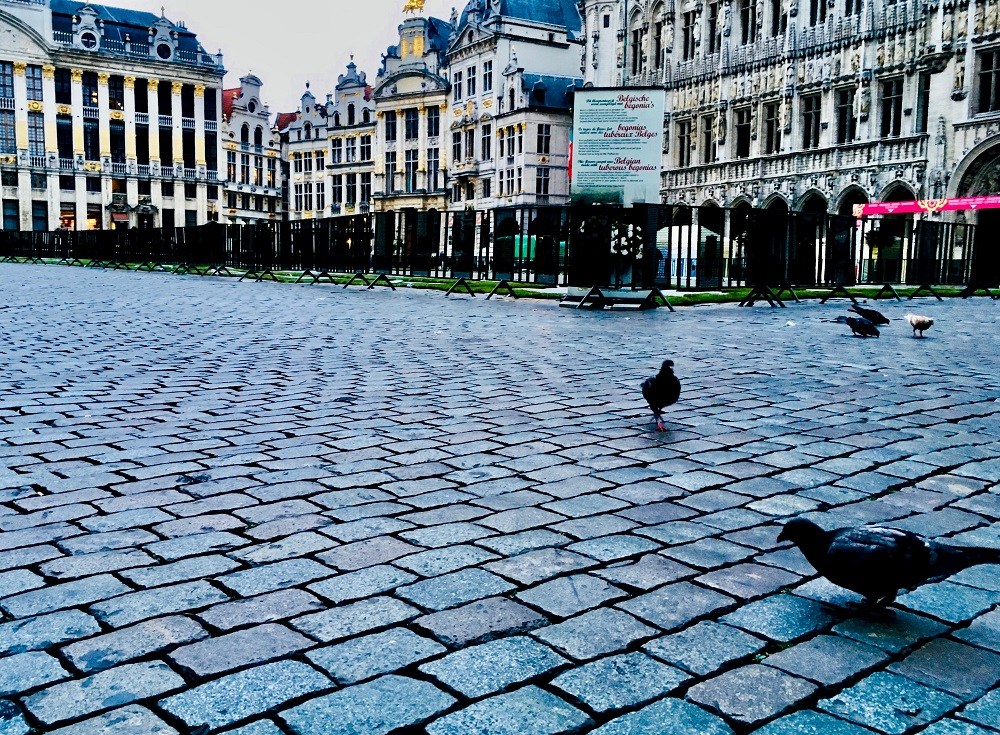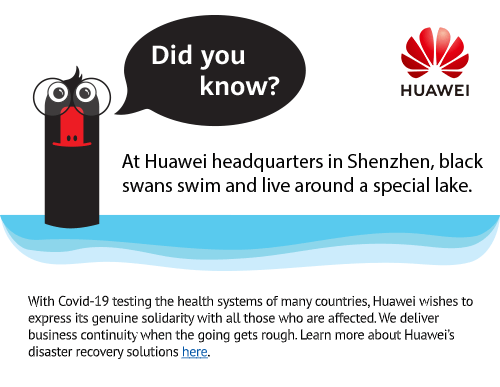BRUSSELS BEHIND THE SCENES
Weekly analysis and untold stories
With SAMUEL STOLTON
Other Brussels behind the scenes stories:
In Brussels, a sneeze tells a different story
An EU ‘four-shirter,’ for the wrong reasons
Why the UK should never return to the EU
Brussels is not a city of solitude
Earlier this week, I ran into a neighbour, a Commission official, on the way back from work. Beads of syrupy sweat forming above his brow, his voice broke under the burden of distress. “We need to get to the supermarket first thing tomorrow,” he said. “This time next week, we’ll all be on lockdown.”
Over the past two weeks, we’ve been living amidst a spasm of hysteria, reeling from the crisis brought on by the Coronavirus outbreak, which has now taken hold in Europe. A cultural milieu now prevails counter to that most innate of human instincts: to engage in social activity.
Indeed, there are strata to these age-old habitudes. For the Italians, being steadfastly bent on those customs which bring human beings into a delicious symphony of physical contact upon each social engagement, it has been a testing time.
Sent out every Friday afternoon, BRUSSELS BEHIND THE SCENES brings the untold stories about the characters driving the policies affecting our lives. Analysis not found anywhere else, The Brussels Times' Samuel Stolton helps you make sense of what is happening in Brussels.
If you want to receive Brussels behind the scenes straight to your inbox every Friday, subscribe to the newsletter here.
Following the advice of the Belgian government to close all restaurants, bars, cafés and discos until April 3, as well as postpone a range of sporting events, many of us in Brussels have resorted to home working.
Colleagues of mine have been quick to extend the arm of communication, lamenting over the perceived threats to our mental quietude resulting from being with oneself solely, for a prolonged period of time. Have we become so susceptible to the inexorable stillness at the core of our everyday existence? Can we no longer be alone?
Solitude has historically been resigned to the domain of religious hermeticism, but the experience, as part of social and political theory, has been debated over for millennia. Aristotle, despite later in his life drawing attention to the contemplative benefits of solitude, believed that human communities were inherently social animals who contributed to the pursuance of ‘good’ through their involvement with the polis (the state), and for those who wished not to be a part of this craft, were said to be “no part of the state.”
This social reading on the negative ramifications of isolation was a powerful notion and has since had a considerable impact on Western thought, with the 17th century English Philosopher Francis Bacon famously appropriating Aristotelian thought and describing all those with an ‘aversion’ towards society a ‘savage beast.’
The well-known break with this line of thinking came with the onset of English Romanticism in the late 18th century and a fetishization of being alone as part of one’s ability to access the mystical province of the Sublime – a transcendental quality of human experience in which the subject is able to access a sense of greatness beyond all other forms of experience. In this vein, William Wordsworth’s “Impulses of deeper birth, Have come to him in solitude,” spring to mind.
BRUSSELS BEHIND THE SCENES POWERED THIS WEEK BY
In the 20th Century however, it came upon the German-Jewish émigré Hannah Arendt, who fled to the US towards the end of World War Two, to conceive of the most relevant notion of public and private experience to us today. Arendt believed that human action could be divided into two realms: the more practical and social forms of existence, which she called the vita activa, and the more solitary, personal and private experiences which she referred to as the vita contemplativa.
That which beckons us now in Europe, is an indeterminate period of time confined physically to a theatre of isolation, the vita contemplativa.
In Brussels, at least in the European quarter, this is problematic. If one takes the liberty of crediting Brussels as the polis of a supra-national liberal body, the European Union, the annexation of the ‘social’ aspect of this organisation leaves a profound deficit.
The ‘industry’ of policymaking in this city relies on a dizzying cacophony of lobbying events, policy briefings, cocktail parties, swanky banquet dinners, and flaccid promotional gatherings, laced with half-dead smiles and a pervasive sense of duplicity, as if the whole community working in the EU quarter is engaged in an insatiable assembly of exploitation over one another.
Should such a trade be poached from the hands of those working here, policymaking and political strategy become the enterprise of officials confined to their private domains. How and if this has an impact on the nature and essence of political thought remains to be seen.
However, it’s important for us to consider the differences in devising political strategy and policy as part of a mixed and collaborative group and doing so alone. Digital tools of course have their merits in bridging the gap left by the withdrawal of the social domain of experience, but they lack the human investment conveyed by our expressive features, so startlingly evident in the common light of day.
The EU is a wild and unruly orchestra at the best of times, but it has nevertheless remained a peopled ensemble. The Union, across all the institutions, is at its weakest when working in silos. The capacity of COVID-19 to enact a radical change on the working culture of those in Brussels, and potentially the politics of the EU, will soon become harshly palpable.
Sent out every Friday afternoon, BRUSSELS BEHIND THE SCENES brings the untold stories about the characters driving the policies affecting our lives. Analysis not found anywhere else, The Brussels Times' Samuel Stolton helps you make sense of what is happening in Brussels.
If you want to receive Brussels behind the scenes straight to your inbox every Friday, subscribe to the newsletter here.


